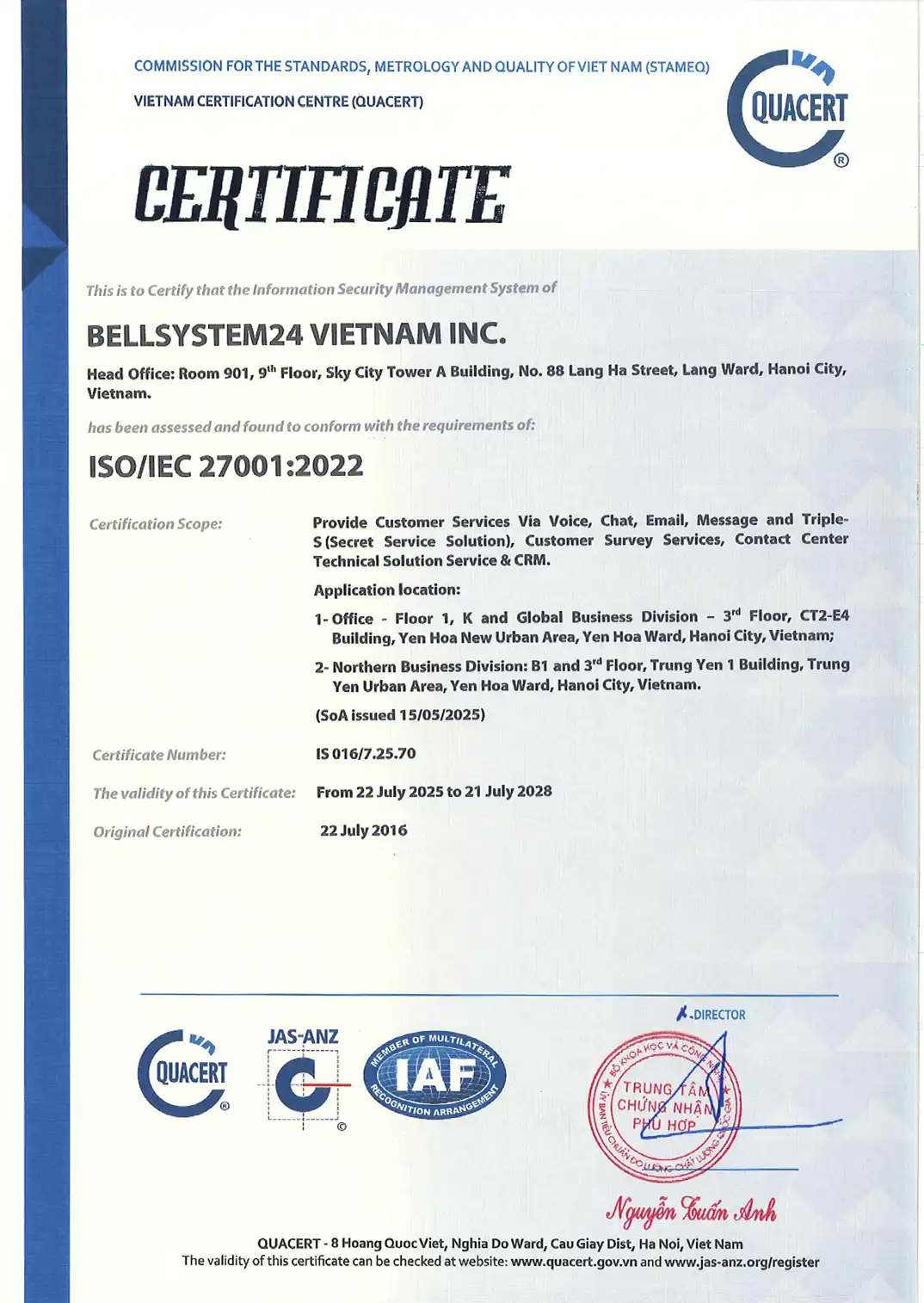Language skills are a very important skill for people in social activities, and are especially important for a customer service representative. They play a decisive role in work performance.
Although call center agents typically interact with customers according to pre-set call scripts, negative behaviors during work that are not covered by the scripts can still occur.
This article summarizes behaviors to avoid and things you should not say to your customers.

1. We are not responsible for that.
There are issues beyond your control, but if you shirk responsibility in this way, it will have a negative effect on customers.
Remember, the goal of customer service is to satisfy them. Instead of shirking responsibility, suggest that: I will save your information and forward it to the relevant department to assist you.
2. It's time for a break, please contact us later.
It's unprofessional to refuse a customer's call when you're about to leave. Even if you have to go home late, don't disappoint your customers.
Or in case of force majeure, please respond: I will transfer your call to a colleague. Please hold the line!
3. Losing your composure.
If a customer is contacting you while angry, resisting them only shows a lack of professionalism, making things more complicated and difficult to resolve. Instead, show empathy towards them to calm the customer's anger.
For you: Positive words to create empathy.
4. I am a new employee.
This is a common situation for many new employees. Being new to the job makes it easier to get flustered and "speak your mind."
But you know, what you just said will immediately destroy customer trust. Instead, there are many ways to handle situations that you don't know how to deal with.
You can say: Please hold the line for a moment. I will look up the information and get back to you right away. (In the meantime, you can ask your colleagues for their opinions.)
5. If you continue to lose your temper, I will hang up immediately.
This is a continuation of case number 3. Responding in this manner would be insensitive and unprofessional.
Please say: I can resolve this issue for you, but we need to stay calm. Or I can transfer your call to the department responsible for handling it.
6. Would you like to speak with the manager?
Sometimes customer service representatives may encounter difficulties in certain situations. It is understandable that you would transfer the call to someone with more expertise or higher authority.
But don't make such suggestions to customers yourself because if you do this frequently, your customers will not appreciate it; instead, they will always request to meet directly with management.
You can say: My manager is directly handling such cases, so I can transfer your call to my manager for faster assistance. Would you agree to that?
7. I'll call you back.
This is probably a phrase that is used quite often in customer service. In many unavoidable situations, you have to say that to customers and make them wait.
Certainly, the customer experience will not be good at this time. However, you can mitigate this by providing customers with an estimated time when you will call them back.
For example: I need to find more information to assist you with this case. I will call you back in 3 minutes.
8. Don't say anything.
The time it takes for customer service representatives to search for information or perform a calculation to respond to customers is called dead time.
If you remain silent while searching for information without providing any notification, customers will not know what is happening.
The best approach is to inform customers about what you are doing: I'm handling this issue for you, it will take about 30 seconds, please wait and hold the line for me. At the same time, while processing, always talk to the customer so they know you are still there.
9. Depends on company policy.
The company's policy is non-negotiable during operations. Sometimes customer requests will exceed your ability to intervene.
But don't do it. bad habit Many other customer service representatives often tell customers: "In your case, the company's policy does not provide support."
This will cause inconvenience to customers and create comparisons between the quality of service and after-sales policies of your business and other businesses.
Instead, tell customers about your company's policy scope and give them suggestions or support options that you will strive to provide within the scope of what is possible to help them solve their problems.







